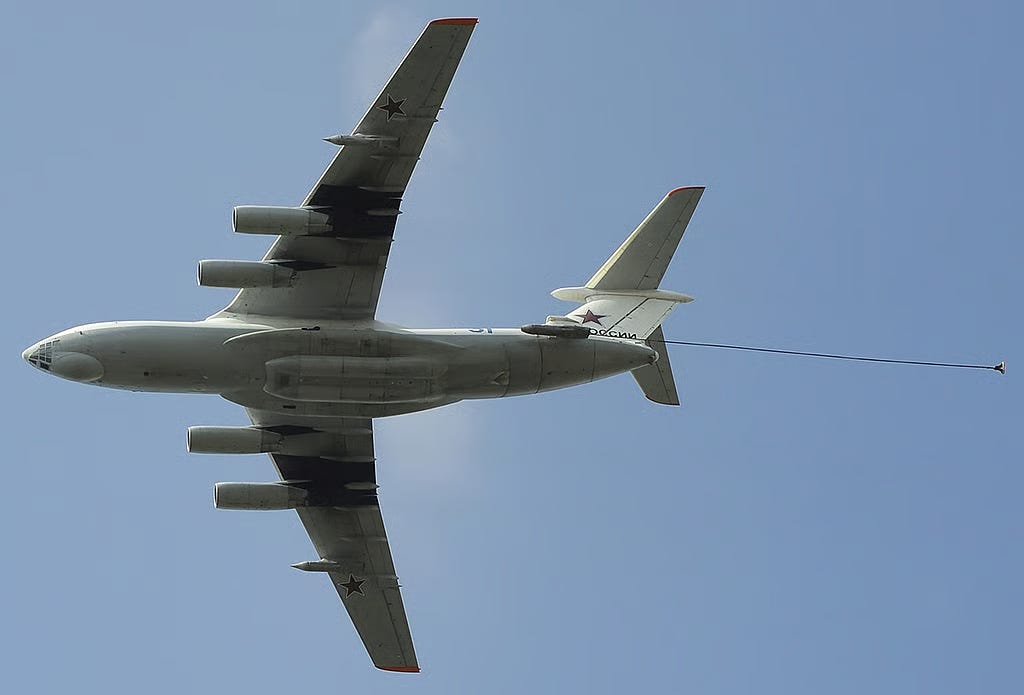Tensions Erupt! Russia Delivers Arms to Venezuela as U.S. Escalates Provocations in the Caribbean
Moscow signals readiness to support Caracas against Washington’s aggressive posturing
Venezuela, PUREWILAYAH.COM - A senior Russian lawmaker has revealed that Moscow recently delivered advanced air-defense systems to Venezuela and may supply long-range missiles in the future, as the United States accelerates its military buildup in the Caribbean under the pretext of counter-narcotics operations targeting the government of President Nicolás Maduro.
Alexei Zhuravlev, First Deputy Chairman of the Defense Committee of the State Duma, told Russia’s Gazeta.Ru that Pantsir-S1 and Buk-M2E air-defense systems were recently flown into Caracas aboard Il-76 strategic transport aircraft.
“Russia is one of Venezuela’s key military-technical partners,” Zhuravlev stated. “We supply the country with virtually the full spectrum of weaponry — from small arms to aircraft.”
“Su-30MK2 fighters form the backbone of Venezuela’s Air Force, and the delivery of several S-300VM battalions has significantly strengthened the country’s ability to defend strategic sites from aerial attack.”
Zhuravlev added that Russia could supply Venezuela with Oreshnik ballistic missiles and Kalibr cruise missiles, asserting that no international restrictions prohibit such transfers.
“The Americans could be in for some surprises,” he warned. “There are no obstacles to providing friendly nations with our newest systems.”
Satellite imagery and recent aviation records show an Il-76 from Russia landing in Caracas on October 26, though the cargo has not been publicly confirmed.
U.S. Forces Mass Near Venezuela Under “Anti-Drug” Cover
The comments come as the U.S. dramatically expands its military presence in the region. The aircraft carrier USS Gerald R. Ford and its escorts have moved from the Mediterranean through Gibraltar into the North Atlantic en route to the Caribbean, joining an increasingly large U.S. naval deployment near Venezuela.
At least eight U.S. warships, a nuclear attack submarine, special-operations support vessel MV Ocean Trader, and multiple air assets — including F-35B fighters, AC-130 gunships, and MQ-9 Reaper drones — are now operating in the region.
Washington claims the buildup is aimed at narcotics traffickers and “dictator Nicolás Maduro,” yet senior U.S. officials have confirmed options for direct military strikes against Venezuelan military units and even moves to seize Venezuelan oil facilities.
The New York Times reports that President Donald Trump is considering aggressive options, despite concerns over potential failure and U.S. troop casualties.
Russia Counters U.S. Escalation
Moscow’s recent ratification of a mutual defense agreement with Venezuela provides a legal basis for expanded cooperation, and the Kremlin has openly signaled that Washington’s moves could justify symmetrical deployments.
Analysts have drawn comparisons to the Cuban Missile Crisis, though Russia retains numerous calibrated escalatory options — including deploying Shahed-136 long-range drones or additional defensive systems — without risking strategic overextension.
Despite U.S. sanctions pressure and military demands in Ukraine, Russia has demonstrated continued capacity to supply advanced systems to allies.
Regional Pushback Against U.S. Militarism
Washington’s interventionist posture has drawn resistance not only from Venezuela and Russia, but also from neighboring states. Mexico’s President Claudia Sheinbaum rejected U.S. plans for potential cross-border kinetic operations against criminal groups:
“It’s not going to happen. We do not accept interference or intervention.”
Meanwhile, bipartisan voices in Washington have demanded explanations for the extra-judicial sinking of 15 vessels in the Caribbean — resulting in at least 64 deaths — under the administration’s expanded “counter-narcotics” operations.
Critics argue that Washington’s actions are less about narcotics and more about geopolitical coercion targeting independent Latin American governments, particularly those aligned with Russia, China, and regional sovereignty agendas.
A New Geopolitical Fault Line
The convergence of Russian military aid, U.S. naval deployments, and strategic posturing by both sides signals a rapidly intensifying confrontation in Latin America — a region historically dominated by Washington but increasingly asserting multipolar partnerships.
With Russia reinforcing Caracas, China publicly warning against U.S. interference, and regional governments rejecting military intrusion, the Western Hemisphere is witnessing a historic erosion of unilateral U.S. influence.
As the situation develops, the stakes remain clear:
Venezuela is not isolated — and Washington’s push toward militarized pressure risks igniting a regional showdown it may no longer be able to dictate. (PW)


